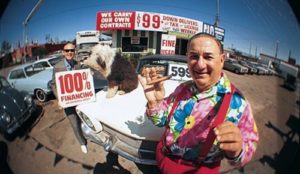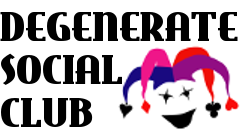
The latest attempt to increase revenues by the professional management of publicly traded Las Vegas resorts is once again pissing off the regular customers.
Surge pricing has now joined previous examples include the decline of comps, worsening gambling payouts, paid parking, and resort fees, as the thing that has people yelling “enough!” and predicting the decline of Las Vegas numbers.
The visitor numbers have remained high, though, and UNLV Economist Stephen Miller is not sure that parking or resort fees are responsible for what small drops there are in visits from California.
Surge pricing may be different.
Also known as dynamic pricing, surge pricing has gotten prominent attention in recent years as consumers experienced it using ride-share platforms Uber and Lyft.
Consumers are certainly well aware of dynamic pricing. They are used to it in places like airline fares and hotel rooms, where the goods purchased expire at a point in time, and capacity is not easy to expand.
But consumers are not used to it in paying for rides, and the backlash to Uber and Lyft had them change their approach and limit the extent to which prices could change dynamically.
Hotel gift shops are a whole different world. The goods are not fixed in time like a flight or night at a hotel is. There is not an understood built in scarcity like with the number of seats on the plane, or rooms in the hotel. Outside souvenirs, the items in a hotel gift shop are things you know you can get at tens of other places by making a short trip.
Yes, you would expect the convenience of getting the toothpaste without leaving the hotel is worth a premium. Indeed evidence indicates how consumers perceive price is as important as price itself. In other words, knowing you are paying for that convenience means even a very high price may not be perceived as excessively high.
So what kind of perception is it when consumers see no prices at all? Not good.
First off, having to constantly ask prices, and the suspicion that you may be paying more than the person before or after you, is going to feel more like buying a car than a tube of toothpaste. And research shows “[T]he average consumer would rather have a tooth pulled than visit a car dealer.”.
It even hurts the front line employees, who are also harmed by haggling and variable pricing.
Psychologically, this completely opaque pricing hits us right in core areas of perceived fairness and regret.
Perception really is important. One reason people spend money willingly in Vegas is that visitors truly feel they are someplace different, that their normal day to day rules do not apply.
Which is why things like parking fees and other examples of nickel-and-dimeing hurt. It dispels that illusion.
Unlisted dynamic pricing in Las Vegas is sure to do the same.
Perception matters for pricing. And pricing signals a lot about a shop.
Las Vegas venues should be more careful with their image, and what image they want to convey with their pricing.
After all, who wants to go on vacation to feel like you are on a giant used car lot the entire time?

